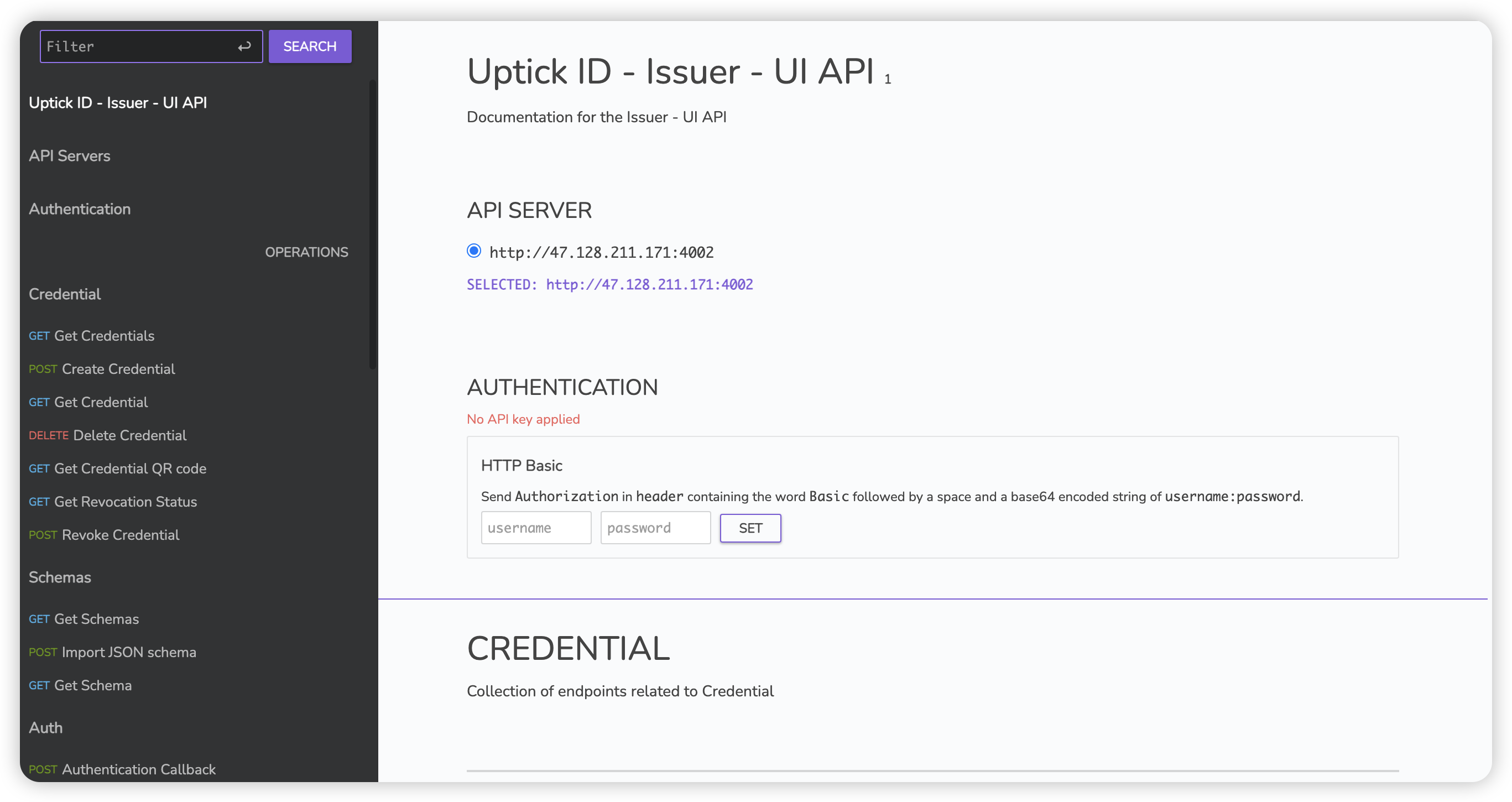Issuer Overview
An Issuer is any subject that issues Verifiable Credentials. You can think of a credential as a statement: something an Issuer says about another subject. For example, when a university (Issuer) claims that a student (subject) has a degree, this is a credential.
An issuer might be:
- A DAO that issues “membership claims" to its members.
- A Government institution that issues Identity documents to its citizens.
- A Face detection Machine Learning application that issues "proof of personhood" claims.
- An employer that endorses its employees.
Verifiable Credentials are a flexible data format able to express any type of information so that developers can unleash their creativity.
Operating an issuer
There are some different ways one can perform issuer-related actions, that is, manage and issue credentials, establish connections with holders etc. These are the currently available options:
Running an Issuer Node directly in your infrastructure.
Utilizing the issuer node available in the Google Cloud Marketplace (soon available also on the AWS Marketplace).
Adapting the JS SDK to your application that issues credentials.
Using SaaS vendors that leverage Privado ID solutions.
Making use of Privado ID smart contracts for on-chain issuance.
Issuer Nodes
To operate, an Issuer must run an Issuer Node, which is a self-hosted Node that exposes all the functionalities necessary to run an issuer.
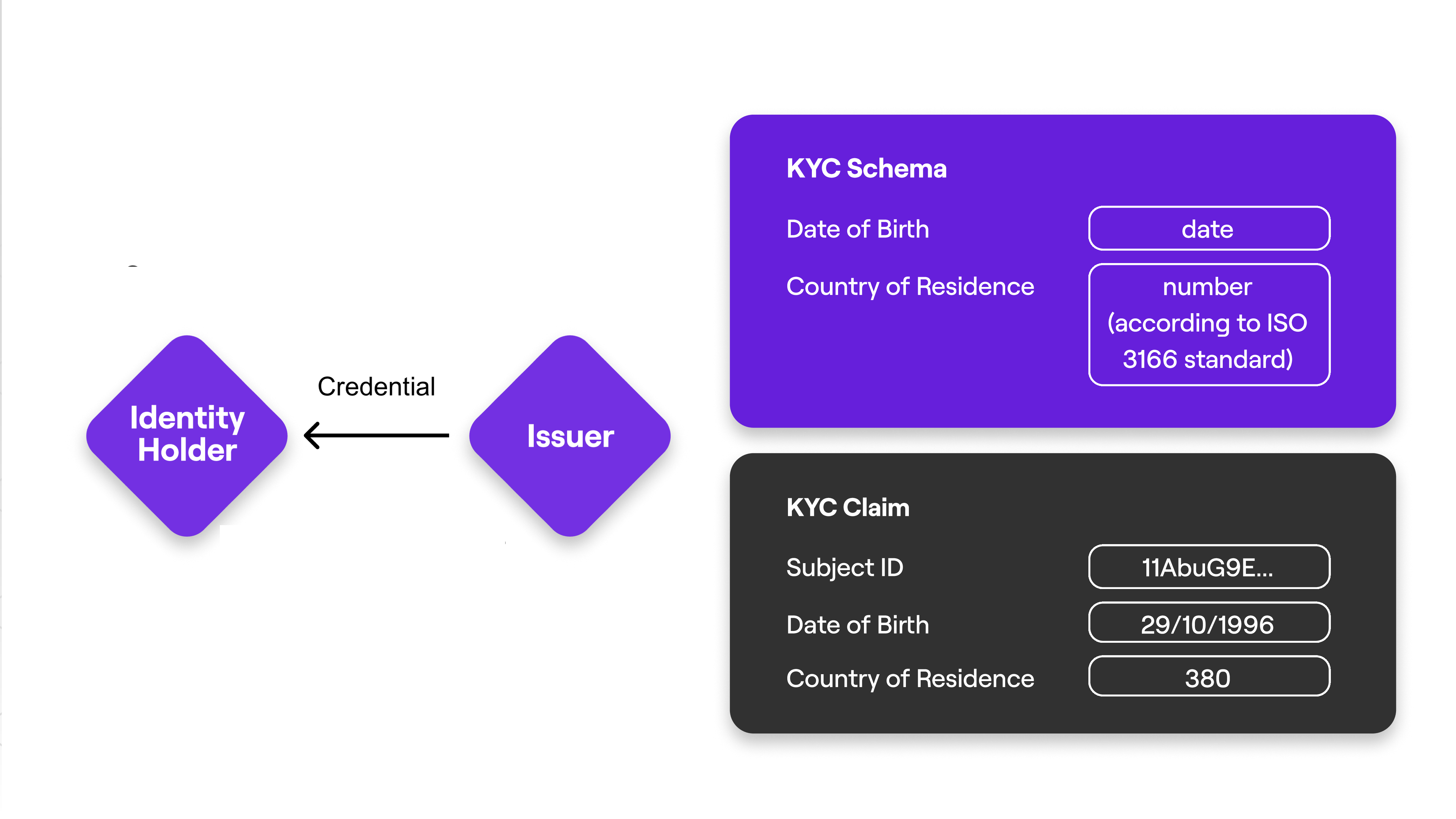
There are basically two ways the Issuer Node can be implemented:
- Issuer Node Core API
- Issuer Node UI
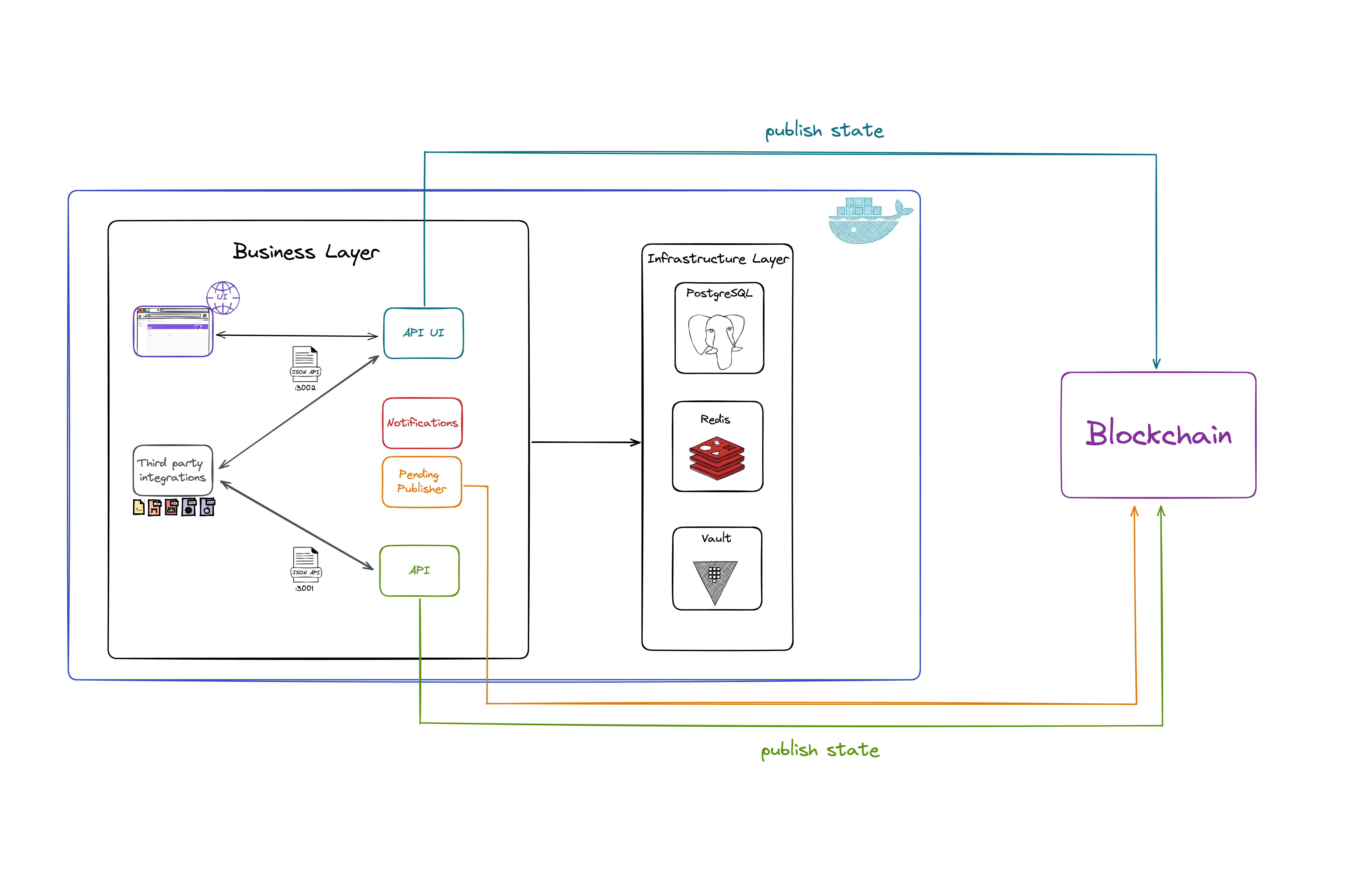
Issuer Node Core API
The Issuer Node Core API is ideal for users who need multiple identities and for integrator profiles, who want to create solutions based on Privado ID functionalities and might be interested in having access to low-level information such as Merkle Trees.
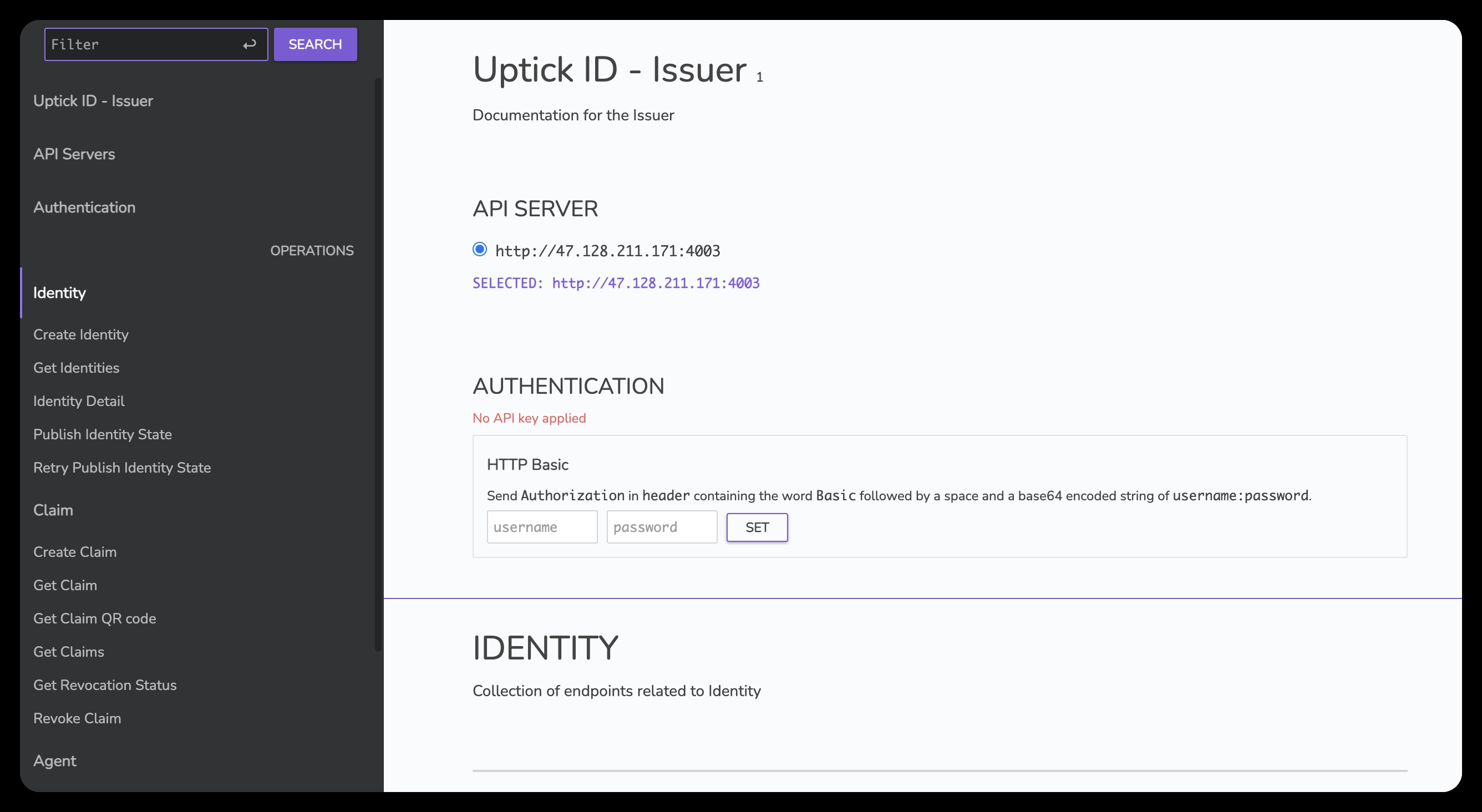
Issuer Node UI
The Issuer Node UI provides the full experience of having an Issuer Node with all its capabilities. Although it offers only a single identity, it also presents a few extra features, such as establishing connections and importing schemas. It comes in an API format but there is also the possibility of generating a full-fledged user interface.
Issuer Node User Interface with a more visual experience:
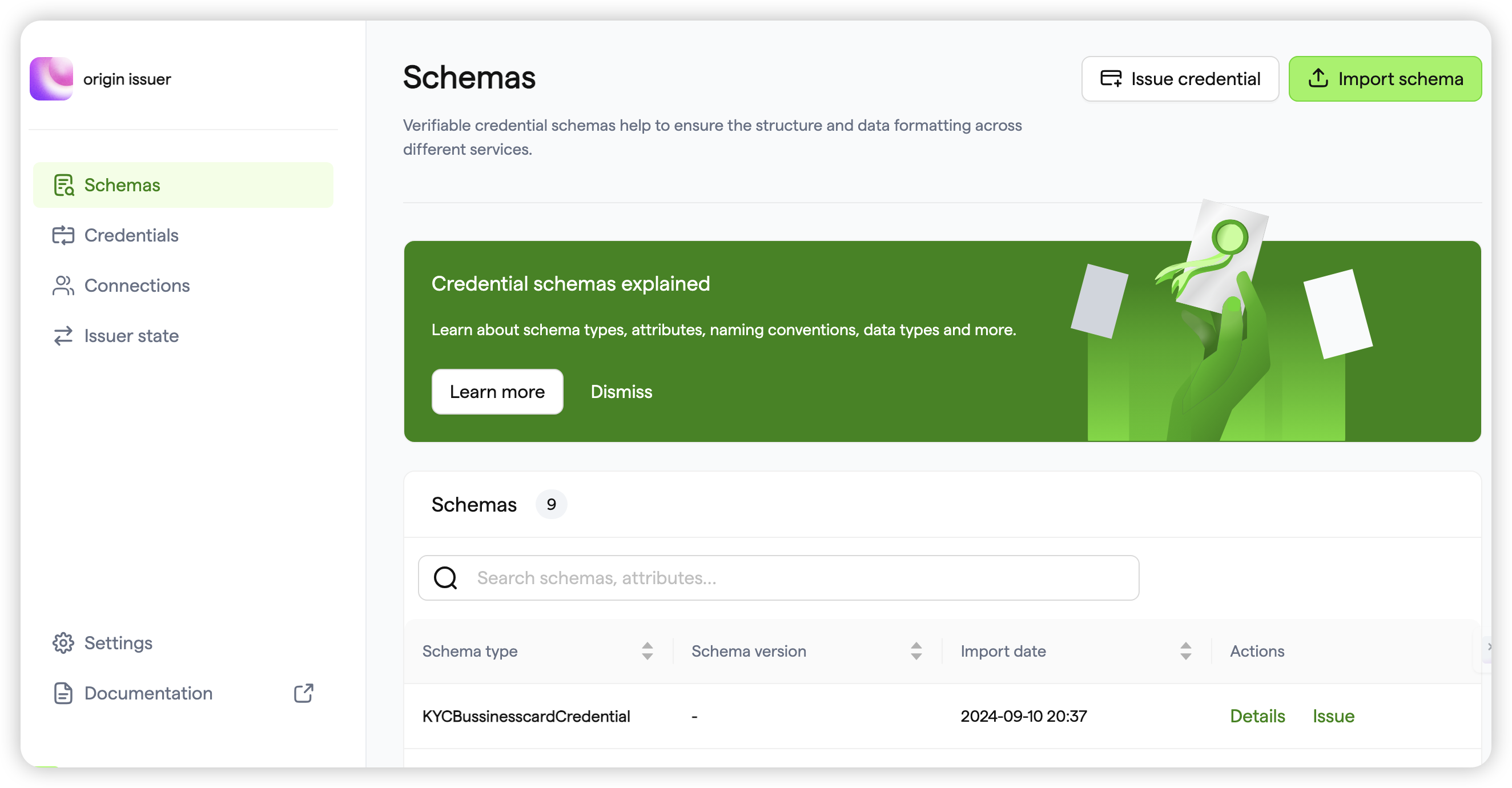
Issuer Node API UI with Managing Schemas, Credentials and other functionalities:
